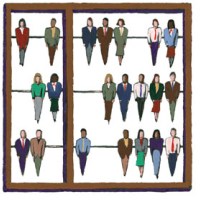Where is John Smith?
---
 A recent Gallup poll indicates that 60 percent of Americans want Arabs to undergo more intensive screening at airports. The Federal Motor Carrier Administration, which inspects trucks carrying hazardous materials, has announced that it "will be looking closely at the drivers, and if the person looks to be of Arab descent that would be enough" for stepped-up scrutiny. Those are just two instances of ethnic profiling now urged on us in the aftermath of September's horrific events.
A recent Gallup poll indicates that 60 percent of Americans want Arabs to undergo more intensive screening at airports. The Federal Motor Carrier Administration, which inspects trucks carrying hazardous materials, has announced that it "will be looking closely at the drivers, and if the person looks to be of Arab descent that would be enough" for stepped-up scrutiny. Those are just two instances of ethnic profiling now urged on us in the aftermath of September's horrific events.But can ethnic or racial profiling ever be justified? After all, national security is a legitimate function of the federal government. Even hardcore civil libertarians concede that it would be foolish to treat civil liberties as inviolable when the lives of innocent thousands are at stake. So, what is to be done?
The Constitution guarantees all persons, including non-citizens, due process and equal protection of the laws. Yet those rights are not absolute. The Supreme Court has insisted that the government pass a rigorous two-part test if it intends to discriminate on the basis of race or national origin. First, government must show that it has a "compelling interest" in employing its discriminatory scheme. Surely, protection against the kind of terror that we experienced on September 11 would qualify as compelling. But second, government may not discriminate unless it adopts means that are "least restrictive" when compared against alternative approaches to accomplish the same ends. That second principle will ultimately control disputes over ethnic profiling.
Read more!
by Robert A. Levy
Robert A. Levy is a senior fellow in Constitutional Studies at the Cato Institute.

No comments:
Post a Comment